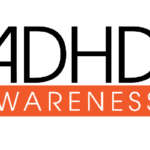Learn About Bipolar Disorder
Bipolar disorder (formerly called manic depressive illness or manic depression) is a mental health condition that causes extreme changes in mood, or “mood episodes” that include emotional highs (mania or hypomania) and lows (depression). In addition to mood swings, people often struggle with unusual sleep habits, energy levels, judgement and behavior.
People may have manic episodes, depressive episodes or mixed episodes in which both manic and depressive symptoms are present. Mood episodes are intense and often happen along with extreme changes in behavior and energy levels. Episodes can last one to two weeks or sometimes longer, and symptoms are present every day for most of the day. Mood episodes are intense. The feelings are strong and happen along with extreme changes in behavior and energy levels.
Types of Bipolar Disorder
The Diagnostic and Statistical Manual of Mental Disorders (DSM-5) recognizes four primary types of bipolar disorder:
Bipolar I Disorder
This is when a person has extreme mood swings that range from feeling intensely happy, energetic and unable to sleep (which we call a manic episode) to feeling very down or depressed. These swings can last for a week or more and may involve unusual behaviors that are quite different from how the person usually behaves.
Bipolar II Disorder
This is similar to Bipolar I, but the upswings are less extreme. These periods of high energy and happiness are known as hypomanic episodes. However, people with Bipolar II also experience periods of feeling really down, similar to depression.
Cyclothymic Disorder (Cyclothymia)
This is a milder form of bipolar disorder. People with this condition experience mood swings that go from mild depression to emotional highs, but these feelings are not as intense as those found in full-blown bipolar disorder.
Bipolar Disorder Not Otherwise Specified (BD-NOS)
This is when a person clearly has some symptoms of bipolar disorder, but the symptoms don’t exactly fit into the categories of Bipolar I, Bipolar II, or Cyclothymia. The mood swings may not last as long, or they might not have enough symptoms for a full diagnosis of the other types. Even though it doesn’t fit neatly into a category, it can still cause distress and make day-to-day living difficult.
Remember, it’s normal for everyone to have mood swings, but when these mood swings become intense and interfere with everyday life, it might be a sign of a bipolar disorder. It’s important to seek professional help if you think you may have any type of bipolar disorder. An accurate diagnosis is essential as it helps guide the most effective treatment plan.
Read a detailed article on the differences between Bipolar I and Bipolar II Disorders.
Symptoms of Bipolar Disorder
Bipolar disorder is typically diagnosed during the teen years or early adulthood and is a lifelong condition, but it can be managed effectively with a treatment plan that includes medication management and psychotherapy.
People having a manic episode may:
- Feel very “up” or “high”
- Feel “jumpy” or “wired”
- Have trouble sleeping
- Become more active than usual
- Talk really fast about a lot of different things
- Be agitated, irritable, or “touchy”
- Feel like their thoughts are going very fast
- Think they can do a lot of things at once
- Do risky things, like spend a lot of money or have reckless sex
People having a depressive episode may:
- Feel very “down” or sad
- Feel very “down” or sad
- Sleep too much or too little
- Feel like they can’t enjoy anything
- Feel worried and empty
- Have trouble concentrating
- Forget things a lot
- Eat too much or too little
- Feel tired or “slowed down”
- Have trouble sleeping
- Think about death or suicide
Sometimes people experience both manic and depressive symptoms in the same episode. People experiencing mixed features may feel very sad, empty, or hopeless while at the same time feeling very energized.
Conditions That Can Co-Occur with Bipolar Disorder
Many people with bipolar disorder may have other mental health conditions such as anxiety disorder, obsessive-compulsive disorder (OCD), social anxiety, panic disorder, and PTSD.
Sometimes people who have severe bipolar episodes of mania or depression can also have psychotic symptoms such as hallucinations or delusions.
Bipolar Disorder Diagnosis and Treatment
Proper diagnosis and treatment can help people with bipolar disorder lead healthy and active lives. Long-term, continuous treatment can help those with even the most severe forms for bipolar disorder.
A typical treatment plan includes a combination of medication and psychotherapy (talk therapy). One widely used form of psychotherapy, Cognitive Behavioral Therapy, has been studied in patients with Bipolar Disorder and researchers have found that cognitive behavioral therapy combined with medication is more effective than medication alone.
Between bipolar episodes some people are free of mood changes, but a long-term continuous treatment is important for lifetime management of bipolar disorder symptoms.
The first step is making an appointment with a qualified Novum Psychiatry psychiatrist who is experienced in the diagnosis and treatment of Bipolar Disorder.
Request Your Confidential Evaluation Today
We know that taking the first step can be difficult.
Whether this is your first time seeking psychiatric care or if you are seeking a new provider, Novum Psychiatry can help. Our team of psychiatrists and therapists are committed to understanding your unique experience and working closely with you on a treatment plan to maximize the quality of your life.









